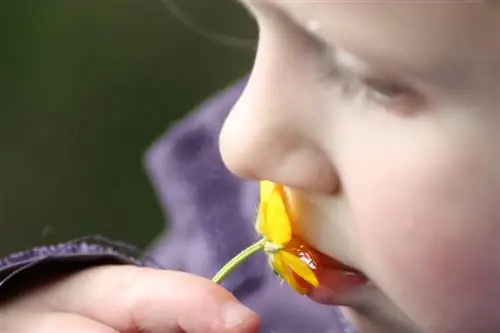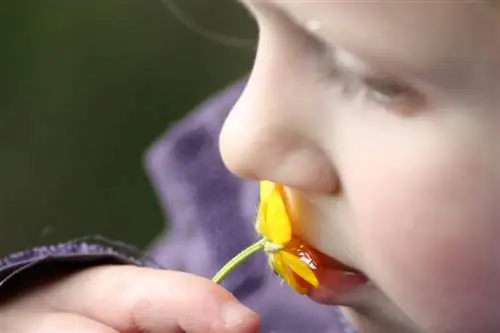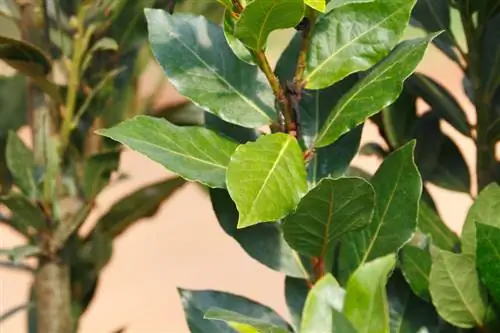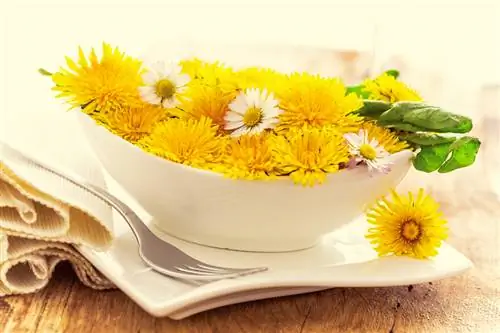- Author admin leonars@hobbygardeners.com.
- Public 2023-12-16 16:46.
- Last modified 2025-06-01 06:02.
The buttercup, also known as the sharp buttercup, decorates numerous meadows in parks, forest edges and bushes in spring. It is also often found near water. It is considered poisonous, but why?

Why are buttercups poisonous?
The buttercup is poisonous because it contains toxic substances such as protoanemonin and ranunculin. If consumed, these cause inflammation, vomiting, diarrhea and skin irritation. However, animals such as horses and sheep instinctively avoid eating buttercups.
Protoanemonin and ranunculin - toxic substances
Buttercups should neither be eaten nor picked. Despite their innocent appearance, buttercups are poisonous. They belong to the buttercup plant family and, above all, they contain a crucial toxin. It's called protoanemonin. On top of that, buttercups contain the poisonous substance ranunculin.
Typical poisoning symptoms
Protoanemonin has an irritating effect on the mucous membranes when consumed, including those in the mouth and throat. It causes inflammation and, when consumed in certain quantities, leads to vomiting and diarrhea. The following symptoms of poisoning can also occur:
- Kidney inflammation
- Cramps
- Disorders of the nervous system
- Respiratory paralysis
- Burning in the mouth and throat
Skin irritation is inevitable upon contact
Even skin contact can have a negative effect. The milky sap in the stems and leaves can cause irritation, redness and rashes - at least in sensitive people. Simply walking barefoot across a meadow with buttercups can cause so-called meadow dermatitis (blister formation on the skin, burning pain).
Also poisonous to animals
Buttercups are also poisonous to animals - in contrast to dandelions, which are sometimes referred to as buttercups and are non-toxic. But there is no need for increased concern: grazing animals such as horses, sheep and cows usually do not eat buttercups because they instinctively know that they are poisonous.
Tip
Since the buttercup tastes unpleasantly spicy, poisoning with it is rather unlikely. By the way: When dried, buttercups are non-toxic because the toxic substances are converted when dried.






